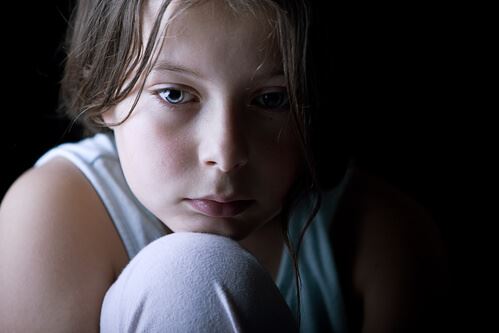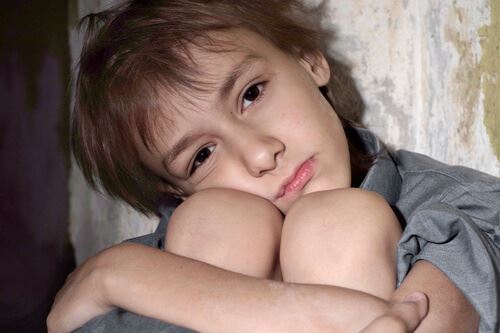The Effects of Domestic Violence on Children
Above anything else, a child’s first need is to feel safe and secure from harm. This includes having a home that is free of violence and guardians that protect them. Where a child lives should be a safe haven for him or her when things are not going right in his or her outside world.
Unfortunately, this is not the case for almost 4 million American children between the ages of 3 and 17, who are being exposed to domestic violence each year. Statistics show that 95% of these victims are women, and their kids are secondary victims, becoming witnesses.
What Does the Child See?
A child does not need to see the physical or sexual abuse being inflicted to feel its effects. Hearing fighting, crying, and threats from another room will have just as much an impact on their psyche as observing the actual violent act. So does witnessing the aftermath. Finding mom bleeding and crying is an extremely traumatic event for a child—a scene that will stain their memories for the rest of their lives.
How Does the Child Feel?

![]()
Children who are raised in a violent household learn early on that no one can be trusted. It can also destroy their courage to find that someone they love and should be able to trust. These kids that are being exposed to violent acts in their own home live in fear and are always on guard, waiting for something else terrible to happen.
Younger kids are particularly vulnerable in feeling anxious and fearful at all times. They have no understanding of what triggered the violent acts; therefore, they can never feel completely safe. A constant state of worry encompasses their lives, as they grow to believe that their mother, siblings, and even themselves’ are always in danger of being hurt.
As they grow surrounded by domestic violence, these kids become more guarded and secretive in their outside world. Shame takes over as they now live with the fear of teachers and friends both finding out what is happening in their home. To most, they will appear to be perfectly normal, albeit shy kids, but, inside, their thoughts and feelings are in constant turmoil.
The need to blame will grip children who are living in the shadow of domestic violence. Some will become protective of their mother and believe that the pain inflicted on her is somehow their fault, while others will direct anger at her for allowing the abuse to continue. Rage, humiliation, guilt, and embarrassment are not uncommon emotions displayed by kids in abusive households.
Behavioral Effects
Children being raised in a house wrought with domestic violence show many of the same behavioral patterns of those who are neglected. They seek attention, affection, and approval from the outside world, as they are probably not receiving much of that in their home life.
There is a tendency towards boundary issues with kids who are being raised in a violent environment. They will often become overly attached to other, non-violent, authoritative figures in their outside life, such as neighbors or teachers. Rejection from these substitute parents will be devastating to their fragile egos.
Difficulty expressing anger is prevalent, as children are slowly being programmed to believe that acting out violently is a normal response mechanism. From prolonged exposure, they can also fall into deep depressive states. Guilt and shame can grip them so hard that they are unable to participate in outside activities or schoolwork.
Physical Effects
Chronic stomach aches and headaches are a common symptom that many children who witness domestic violence episodes with regularity will experience. Sleep issues are also observed and can be attributed to their fear.
In households where domestic violence is occurring, there is an overwhelming chance that it will be passed on to the kids. In some cases, the aggressor, usually the male role model, will begin to act out on their anger with the child. Often times though it is the victim who out of frustration for her own sense of powerlessness will act out violently against the children in an effort to try and regain control of her own life.
Developmental Effects
A sense of security and love is essential for a child to thrive. For those who live in this on-going state of turmoil, their emotional and mental growth can be stunted. For those children who are being exposed to violent acts at a very young age, speech is often delayed along with other essential cognitive skills like walking and eating on their own. It is not unusual to find children who witness domestic violence to still wet their beds, even as adolescence approaches.
As they grow and begin to attend school, teachers will find that these students’ attention spans are short and that they have trouble expressing themselves. By being deprived of a home life that fosters healthy development, these kids can struggle with school, both academically and socially. They may mimic the behavior of the aggressor in their household and turn to bully as a way to cope, or they could feel so victimized that they allow that trend to continue at school by becoming the target of other, overly aggressive children.
What Does the Future Look Like for Children Living With Domestic Violence?

![]()
While statistics suggest that most of the children who bear witness to domestic violence will eventually become a victim too, even those that don’t will grow up in the shadow of severe psychological trauma. Seeing a person you love and respect continuously berate and harm your caretaker teaches a child that intimidation and violent acts are acceptable behaviors in an intimate relationship.
This cycle is so often illustrated by the behaviors of adult children who grew up in abusive homes. Boys in particular can turn into men who have little or no respect for women and will also resort to violent acts against them as a way to resolve conflicts.
Girls on the other hand who witness domestic violence are often more tolerant of it from the men in their adult relationships. They too will often become like their mothers and accept abuse by believing that violent episodes towards them are symbols of love.
As you see kids emerging from violent homes, you cannot help but notice that they are suffering varying degrees of post-traumatic stress disorder. If ignored, they often resort to excessive drug and alcohol abuse, self-harm activities like cutting, and reckless behavior that can put their lives and liberty at risk. The single biggest predictor of juvenile delinquency and adult criminality is witnessing violent acts towards one caretaker from another as a child. This is an important issue that needs to be addressed when dealing with adolescent criminal offenders that have been raised under these horrific circumstances.
Representing the Accused
When a victim of abuse becomes an abuser, the cycle needs to end. Sending the abuser to jail or prison might interrupt the cycle of violence, but it doesn’t solve the problem. If anything, incarceration tends to make people feel resentful and only makes it more likely that they will engage in violent behavior after their release.
As a criminal defense attorney, it is always my job to defend the rights of my clients. I also hope that I can help my clients make their lives better. When someone who is accused of domestic violence is guilty, wants to admit guilt, and wants to avoid further acts of violence, I believe that client deserves a chance to build a better life.
For abusers who know what it is like to be the victim of abuse, a better life means learning to cope with a violent past while living peacefully in the present. They may need therapy to help them understand and deal with past trauma. They may need to learn skills to recognize the onset of anger and to address that anger in nonviolent ways.
The “lock ‘em up” mentality doesn’t help anyone. Therapy and anger management training can make a real difference. As a domestic violence defense attorney, I always advocate for rehabilitation rather than incarceration when I have a client who admits committing an act of abuse and wants to make sure it never happens again.
It is not uncommon for children who experience or witness abuse to repeat that abuse to others in their adult lives. Other times, an adult victim of domestic violence may act out violently against his or her kids while crippled with despair. Despite what some may say, I truly believe that the majority of those who commit these types of acts can be rehabilitated, but it isn’t easy. California courts are prone to treat these types of violations as jail or prison-worthy offenses. Offenders who go to jail and prison rarely learn how to handle their emotions in a less damaging way and continue to repeat their offenses.
There are a number of circumstances where an attorney is able to help convince a judge that the defendant would be better served by fulfilling anger management class requirements or other forms of alternative sentencing. An experienced attorney can help you to better evaluate your situation and help to protect your rights in a court of law.
.2011050634040.jpg)
![]()
